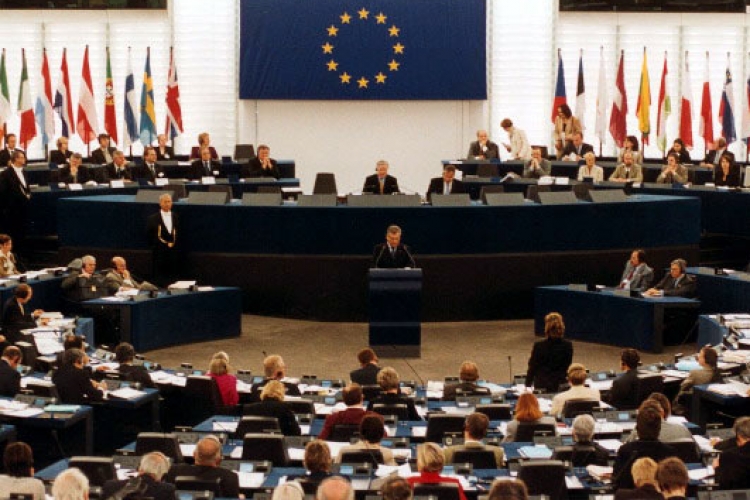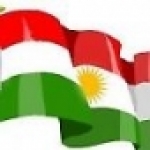EU Has Influence on Turkey To Improve Lives of Kurds? | WLADIMIR VAN WILGENBURG
Rudaw.net - BRUSSELS, Belgium: Every year the Kurdish questions constitutes a great part of the annual conference held by the EU Turkey Civic Commission (EUTCC) on the prospect of the accession of Turkey into the European Union. But after the completion of this year’s conference, the EU remains largely dissatisfied with the lack of real progress in Turkey to meet its standards.
This year’s two-day conference started on November 17. Many people say that the recommendations proposed would once again come unwelcomed by Turkey, as they ask for further and even radical improvements of the rights of Kurds, Turkey’s greatest minority numbering more than 15 million.
The final resolution of the 7th conference of the EUTCC emphasized that “the EU must hold Turkey to the standards laid out as criteria for accession, rigorously monitor Turkey’s progress, exert pressure on Turkey to implement further reforms’.
Furthermore, the EUTCC asked the EU to condemn the arrests of hundreds Kurdish politicians in Turkey, but the question is if the EU can pressure Turkey to carry out reforms.
Former Secretary General of the United Left and the host of the EUTCC conference Stefano Squarcina said that the European Union was losing its influence in Turkey as the NATO-member state looks caressingly disappointed to become an EU member. Turkey is already a member of G20.
“The AKP [Turkish government] understand the situation well and this has impact. If the EU membership process leads to nothing, why improve the human rights situation?”
Asked if the conference can still contribute to solving the Kurdish issue in Turkey, Squarcina said the EUTCC is modest with their goals and just want to provide tools to solve the conflict and put the Kurdish issue on the agenda.
“Never Turkey will enter the EU without solving the Kurdish issue. The road to the EU goes through Diyarbakir; therefore the European Union should encourage Turkey to have a dialogue with Öcalan. This doesn’t mean we are pro-PKK, it’s a pro Kurdish thing.”
French journalist Guillaume Perrier of Le Monde who was invited to moderate for the conference added that Europe is not anymore the “engine of change” and says this also influenced the recent progress report of the EU on Turkey.
“That’s why they [EU] were careful not to mention the Kurdish issue in the last report. Turks don´t care anymore about the negotiation process, because they know they cannot enter anyway.”
Socialist MEP Søren Bo Søndergaard of the GUE/NGL group remarked that pressuring Turkey on the Kurdish issue or human rights by the European Union might not help much.
“What kind of pressure you can put on China, not much. Changes in Turkey and China are going to be made by the people themselves. We can just support and help.”
Therefore it remains the question if the EUTCC recommendations outlined in their 7th resolution will be listened to by Turkey.
David Romano, Rudaw’s columnist and Thomas G. Strong professor of Middle East Politics at the Missouri State University, said resolutions of the EUTCC might be seen as “cheerleading for the PKK” and one-sided by Turkey. In the resolutions they called on Turkey to release the PKK-leader and accept the PKK as a non-terrorist organization.
Therefore Romano advised the EUTCC to recognize Turkish sensitivities more and also condemn violence of Kurdish organization TAK. He noted that Israel also ignored Palestinian resolutions due to their one-sidedness and not condemning violence of the Palestinian side.
But despite that it could have some influence on Turkey, said Derwich Ferho, the director of the Kurdish institute in Brussels.
“Such a conference is not the solution, but it can help. It can also influence public opinion. Europe will also remain important for Turkey, they have a lot of relations with European countries. Even if they want to get rid of their relations with the EU, this is not possible,” added Ferho.
MEP Frieda Brepoels of the Greens-EFA Group was also positive. She added that the presence of more non-Kurds at the conference and cooperation in the conference with other movements from South-Africa, Northern Ireland and Scotland is a positive sign and could be seen as a success. She furthermore said that inviting Kurdish politicians to share their idea and listening to constructive criticism of their policies, could have a positive influence on the Kurdish issue in Turkey.








